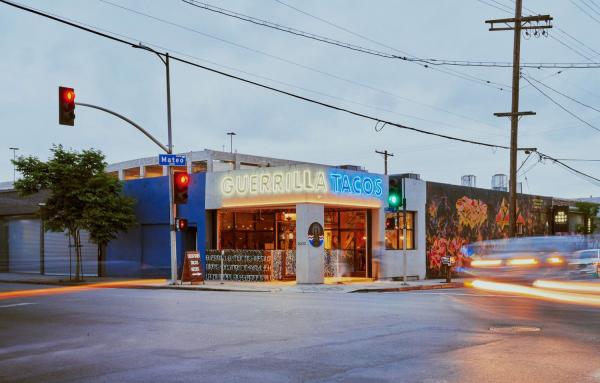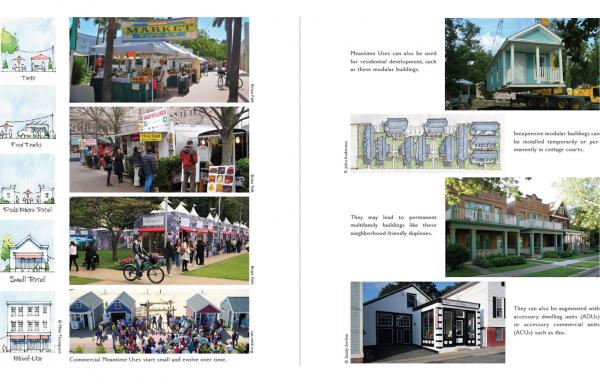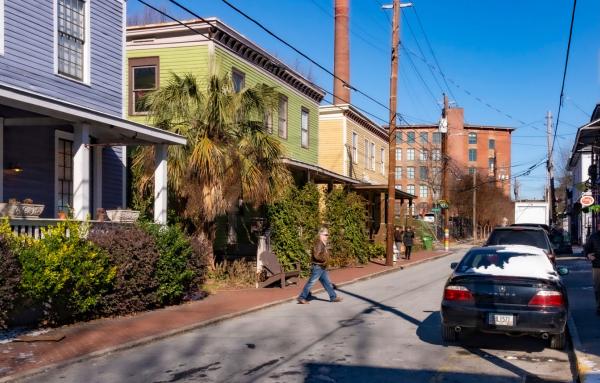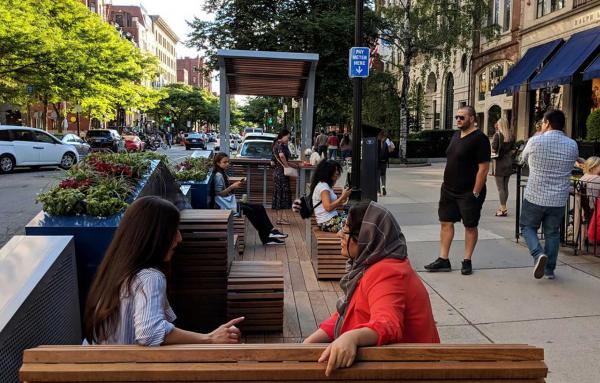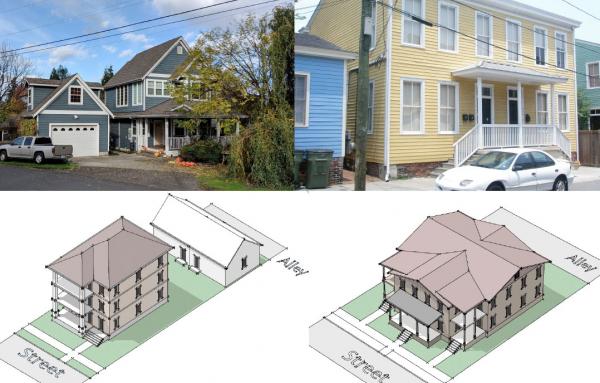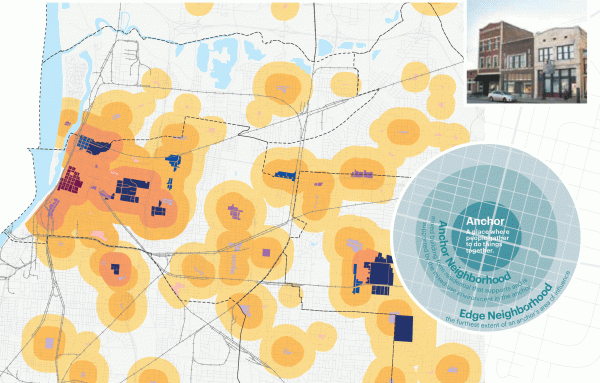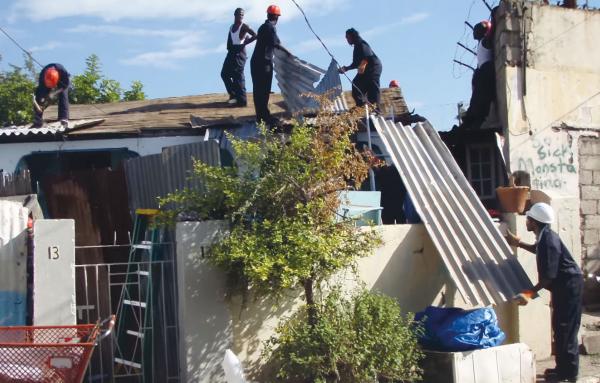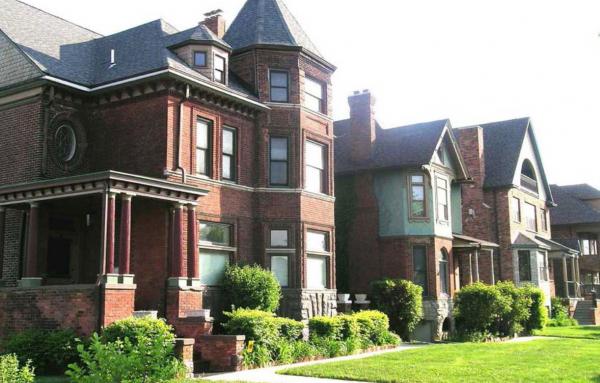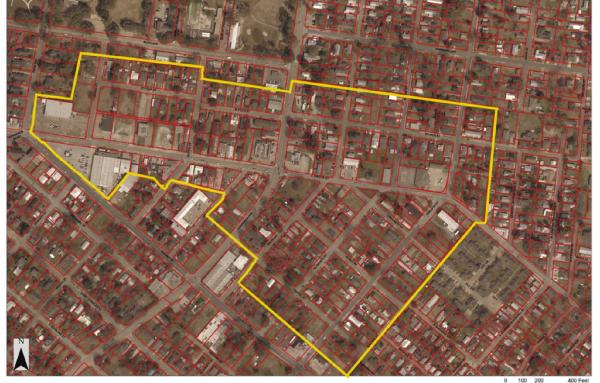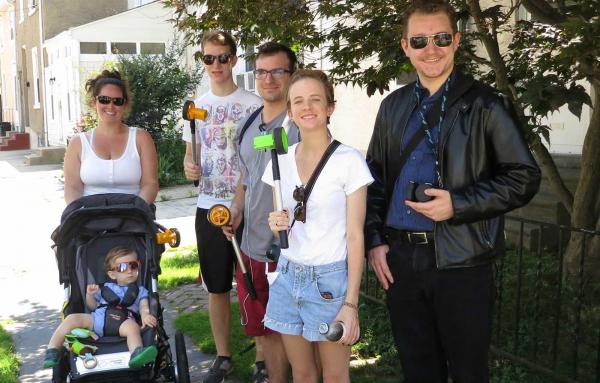Incremental and lean
Various interpretations of the term “guerrilla” sparks debate over its meaning and use within urbanism.
From toilet plungers for bike lanes to community gardens on vacant lots to locally sourced incremental development, citizens are finding creative ways to make urban space while bypassing traditional bureaucratic systems.
The Finley Street Cottages in Atlanta show how attainable housing can be built without subsidy, enabled by incremental zoning reform.
The benefits to good urbanism of finer grain building and development are well known, according to Brian Falk of the Project for Lean Urbanism. Now there are a suite of tools to help make that happen, including Pink Zones and “house hacking.”
Of the four types of recovery facing America cities and towns—disaster, sprawl, disinvestment, and the recovery of community for those fleeing climate change—the recovery of places from serious disinvestment arguably gets the least amount of press...
Building small has advantages in cost, time, ease of approval, ease of entry, and the character of the finished product. Small-scale urbanism has the support of multiple mini-movements, and here are ten ways to do it.
The smallest scale of the Charter of the New Urbanism is the building, and the smallest building is usually a house. Many of us own one, or would like to own one. But it can also be expensive to purchase a house, pay a mortgage, and also launch a...
Add to the list of oxymorons such as “jumbo shrimp,” “deafening silence,” and “military intelligence,” the idea of a “lean comprehensive plan.”
In the planning field, a comprehensive plan often takes 30 years to update, and is usually...
In DIY City, the late Hank Dittmar makes the case for why small is beautiful when it comes to urban regeneration.
Note: Hank Dittmar was a beloved part of CNU and a leader in urban planning, advocacy, and policy. As CEO Lynn Richards expressed, ‘Hank's writing is smart without being elitist, witty and poetic, succinct and often surprising.’ Hank's legacy now...
A Pink Zone, an idea of the Project for Lean Urbanism, is an area of lightened red tape for small-scale projects. Pink Zones are designed to allow individuals with little capital to take action.
Transect-based Lean Codes have compact formats, bare-bones standards, and lighter (pink) red tape, in contrast to the excessive controls, redundancies, contradictions, delays, and unintended consequences created by conventional zoning.
